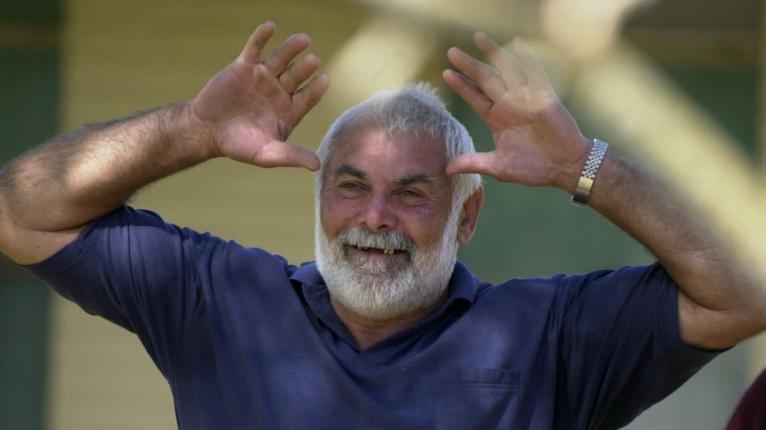Infamous All Black history turned on its head with new revelation about Murdoch's banishment

One of the most infamous All Blacks story of all time has been dramatically turned on its head nearly 50 years later.
It has always been believed that when the late Keith Murdoch was banished from the 1972 tour to the UK that he had been sent home by manager Ernie Todd for punching security guard Peter Grant in Cardiff’s Angel Hotel the night New Zealand beat Wales 19-16.
Murdoch never returned home after the incident, instead setting up a life for himself in the Australian outback until his death in March 2018.
However, publication of the book ‘Murdoch – The All Black Who Never Returned’ prompted Moyra Pearce, daughter of tour manager Grant to speak out at the Featherston Booktown festival in Wairarapa.
Pearce alleged that contrary to the story about an assault of a security guard, Murdoch instead threatened and pursued a woman in the Angel Hotel, and her father’s actions saved him from police prosecution.
Keith Murdoch assault on woman 'real' reason for tour eviction, manager's daughter says https://t.co/V2AiCkmGBE pic.twitter.com/KlmRMIbYRa
— Stuff Sport (@NZStuffSport) May 15, 2019
“A female staff member would not open the bar for Murdoch,” said Pearce to Mark Reason on the New Zealand website, stuff.co.nz. “He became abusive. She ran from him screaming into the kitchen and he pursued her before security staff intervened.
“We [the family] were told that charges were going to be pressed. But the police said if you get him out of the country before our offices open on Monday morning, we won’t press charges.”
The book’s publication finally triggered Pearce to speak about an incident she was told about after her father died of cancer in 1974.

“I needed to break the silence we have held (as a family) for too long. There have been enough other views. I didn’t know Ron was writing the book. He didn’t talk to us. It was the same with the play about Murdoch.
“When the book came out I thought, ‘Not again’. I didn’t want to know about it. But I bought the book, although it was very difficult just carrying it to the counter of the bookshop.
“A friend then told me about Booktown. That was the moment. At first I could only read the chapter about my father but I’ve now read the book twice.
“I prepared over and over again in my head, but I still didn’t know if I was going to be brave enough.”
WATCH: The latest on the Nations Championship saga











































